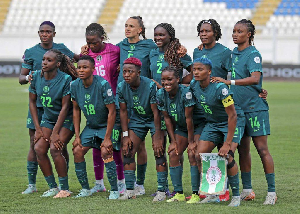As the prices of Aviation fuel, popularly called Jet A1, continue to rise, there are strong indications that airfares will soon be increased again from their present all-time high.
An investigation by Vanguard revealed that Jet A1 is imported through Lagos Apapa Port only into the country and then distributed through road trucking to other airports across the country.
The additional road haulage cost makes the product more expensive in airports outside Lagos.
Aviation fuel constitutes 40 per cent of the running operational cost of operators.
Airline operators, who spoke with Vanguard, said they were considering further increases of airfare to accommodate the recent Jet A1 price hike and scarcity in some airports in the country.
Currently, the pump price of the product in Lagos hovers between N284 and N290 per litre.
Ever-increasing prices
Prices continuIn Abuja, the price is even as high as between N295 and N300, while the product can be purchased for N302 and above per litre in Kano. This is a steady increase in price. In April 2021, the price was between N250 and N275 per litre, which was about a 200 per cent increase in price in 2016 when it was sold at N110.
The difference in prices at various airports, it was learned, is due to the additional haulage cost incurred from taking the product from the Lagos seaport.
Speaking with Vanguard, Mr Chris Ndulue, Managing Director, CleanServe Energy, a major aviation fuel marketer in Lagos, said the current high price of Jet A1 is caused by the current exchange rate of the naira to dollar and the difficulty involved in sourcing forex, among other factors.
Currently, the exchange rate of the Naira to Dollar is N500 naira to a dollar in the parallel market. Getting the dollar at the official government rate is almost impossible, according to operators.
Ndulue said: “Aviation fuel price has been between N284 and N290 naira in Lagos and between N295 and N298 in Abuja.
"In Kano, the price is N302 and above. All aviation fuel comes from Lagos. It is imported; it is not sourced locally.
"With the current forex regime in the country, you can understand the high prices. By the time you add the cost of moving the product from Lagos to Abuja and various other airports, the prices will never be the same.
“There has not really been any scarcity of Jet A1 in the country in the last eight-month. There have only been logistics issues like cost of haulage, scarcity of forex, bad roads, among others.
"However, I do not see the price of Jet-A1 coming down soon, except there is a miracle.
"I wish it comes down because it is currently too high. But all indices and indicators show it will not soon.”
He also disclosed that the Nigerian National Petroleum Corporation, NNPC, had not intervened in the pricing and availability of Jet-A1 in the country because of the corporation’s constraints.
"Market forces have determined the price. The good news is that all airlines have been paying their financial commitment to the marketers.”
Speaking about the likely increase in airfares due to the current high cost of aviation fuel, the Corporate Affairs Manager of Dana Air, Mr Kingsley Ezenwa told Vanguard that Dana Air was still keeping it fares competitive but noted that further increase was inevitable.
Why fares will continue to soar
Ezenwa said: “Aviation fuel is not really scarce in Lagos, maybe other states as they have to truck it. So it’s readily available in Lagos for now but the cost is on the high side.”
On fare increase, the Dana Air spokesman said: “While we try to be very considerate and make our fares convenient for our guests, the implication of this high cost of aviation fuel will definitely lead to a slight increase in fares.
"We have operational cost and as this increases, we have no option than to slightly adjust the fares. But for now, I can assure you that our fares are still very competitive but will change soon except something is done to bring down the price of fuel."
Airline operators groan
Also speaking about the current high cost of Jet A1 and its effect on airline operations, the Executive Chairman of United Nigeria Airline, Dr Obiora Okonkwo, told Vanguard that the current price of aviation had made operations much more difficult at the current fare regime.
“We started operations at N160 per litre barely four months ago and when you move from that price to over N270 within two months, you should expect whatever we are experiencing now in terms of high airfares.
“Aviation fuel alone takes between 30 and 40 per cent of airlines’ costs. This was cause for grave concern to everyone,” Okonkwo added.
Vanguard investigation revealed that the price of aviation fuel might not come down soon as marketers who import mostly from European, South American, and refineries in Africa, sell at prices not regulated by the government.
Also the recent appreciation of crude oil price to $73.5 per barrel in the world market, and Naira’s free-fall to N500/$1 at home may further escalate the prices as the landing cost will increase.
Multiple taxes and charges
Aside from the multiple taxes and charges on the product, the monopoly of marketers at less viable airports has also raised the price in these airports.
While the cost of transportation of aviation fuel within Lagos is about N3 per litre, it is about N15 per litre travelling up North, as far as Maiduguri.
Similarly, the Federal Government statutorily earns N2:50 fuel surcharge tax per litre. Also, marketers are made to pay for operators’ permits, ground rent for tank farms, and access permits for equipment into airports.
Findings revealed that airfares are already hitting the roofs and are expected to rise further due to the increasing price of aviation fuel
For instance, early morning first flight of all domestic airlines in and out of Lagos and other cities now cost as much as between N50,000 and N60,000 for less than an hour flight, depending, however, on time of booking.
Recall that before the outbreak of the COVID-19 pandemic last year, the fare for the same duration of the flight was between N20,000 and N30,000.
Experts attributed the sharp increase to the rise in the price of fuel compelled by the rising price of crude oil in the international market which currently hovers around $80 per barrel.
Business News of Friday, 23 July 2021
Source: vanguardngr.com













